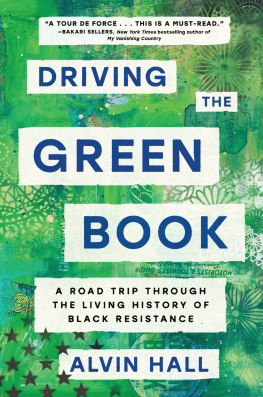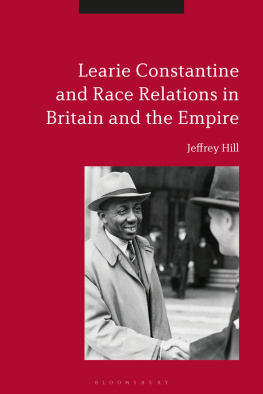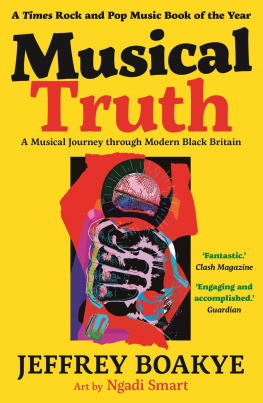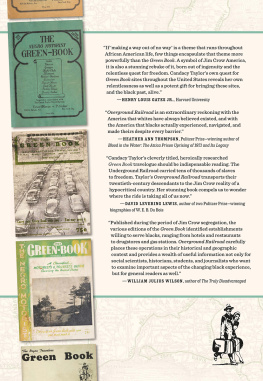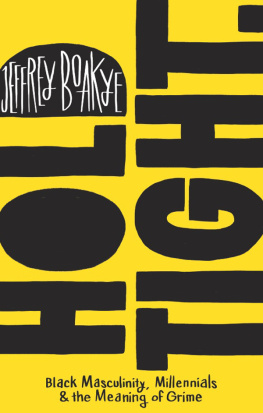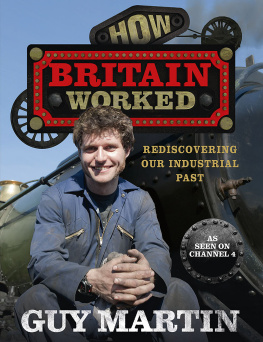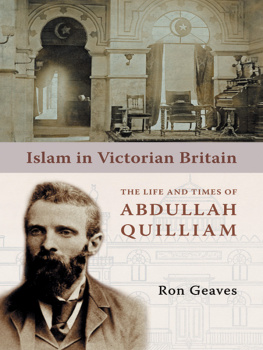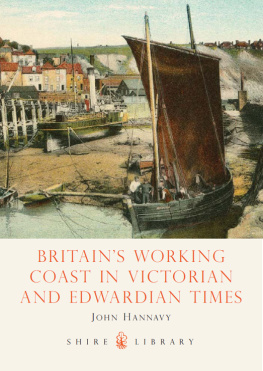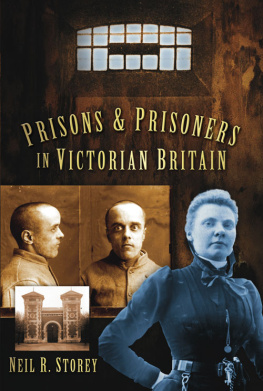BLACK AMERICANS IN VICTORIAN BRITAIN
This study is dedicated to David Killingray who knows why; and to Adam David Greiff and Oliver George Greiff who may get to understand their grandfather.
BLACK AMERICANS IN VICTORIAN BRITAIN
Jeffrey Green
First published in Great Britain in 2018 by
PEN AND SWORD HISTORY
an imprint of
Pen and Sword Books Ltd
47 Church Street Barnsley South Yorkshire S70 2AS
Copyright Jeffrey Green, 2018
ISBN 978 1 52673 759 5
eISBN 978 1 52673 760 1
Mobi ISBN 978 1 52673 761 8
The right of Jeffrey Green to be identified as the author of this work has been asserted by him in accordance with the Copyright, Designs and Patents Act 1988.
A CIP record for this book is available from the British Library All rights reserved. No part of this book may be reproduced or transmitted in any form or by any means, electronic or mechanical including photocopying, recording or by any information storage and retrieval system, without permission from the Publisher in writing.
Pen & Sword Books Ltd incorporates the imprints of Pen & Sword Archaeology, Atlas, Aviation, Battleground, Discovery, Family History, History, Maritime, Military, Naval, Politics, Railways, Select, Social History, Transport, True Crime, Claymore Press, Frontline Books, Leo Cooper, Praetorian Press, Remember When, Seaforth Publishing and Wharncliffe.
For a complete list of Pen and Sword titles please contact
Pen and Sword Books Limited
47 Church Street, Barnsley, South Yorkshire, S70 2AS, England
E-mail:
Website: www.pen-and-sword.co.uk
Acknowledgements
Evidence of peoples lives history is scattered. Librarians and archivists have been very helpful and the elderly documents they care for have provided valuable evidence. Their role is easy to overlook when resources have been digitized. To sit in England and check lists of prisoners disembarking in Australia in the 1830s, to read copies of slave narratives from the 1840s and to search numerous newspapers, all online are wonderful facilities. But the help of descendants of the Victorians, family historians, and the downright curious has been essential.
My website www.jeffreygreen.co.uk started in 2009 and has encouraged contacts by individuals, including Geoffrey Gillon who alerted me to his discovery of the 1875 grave of Joseph Freeman, and Chris Clark who shared his interest in his ancestors Ellen and William Craft who escaped slavery in Georgia in 1848 and had six children in England.
Help from the following is acknowledged with many thanks:
Susanna Ashton * Anita Bateson * Richard Blackett * Jenni Blair * Stephen Bourne * Caroline Bressey * Ed Bristow * John Burton * Kathy Chater * Chris Clark * Sean Creighton * Emily DeCosta * Bill Egan * Marjorie Evans * Helen Franklin * Geoffrey Gillon * Harlan Greene * Kyra Hicks * Rita Hughes * Jess Jenkins * David Killingray * Bernth Lindfors * Fay Lock * Rainer Lotz * Greta Morton-Elangu * Hannah Murray * Jill Newmark * John Rogan * Mark Rollason * L. David Roper * Lesley Russell * Howard Rye * Elizabeth Stacey * Beverly Tetterton * Andrew Ward * Mary Watson.
Introduction
In 1986, marking the centennial of New Yorks Statue of Liberty, an exhibition noted For most Afro-Americans, the Statue of Liberty is of minor importance except as a symbol of their unfulfilled dreams. At the time of the statues construction, adult Americans of African descent had first-hand knowledge of slavery.
Enslaved black men, women and children were vital to the economic growth of what became the United States of America. The world they created and the hardships they experienced have rightly dominated studies of African American life. They were kept in ignorance and were lacking education, and few had knowledge of anywhere other than their immediate district although African words, social practices and crafts survived in isolation.
There has been much interest in those who, despite so many disadvantages, escaped from servitude in the Southern states. Those who ran to freedom were both a drain on the Southern economy and a political irritation. Reaching the less restrictive Northern states did not end the risk of recapture nor provide the freedom that many sought, so fugitives went further north into British North America (Canada). Some went to Africa, some to the Caribbean, others to the west including California.
This study is focussed on the east-bound migration to Britain. British attitudes were affected by the testimony of these black witnesses who informed the British and Irish about life in the United States. Individuals made their homes in Britain and married British people to an extent which
Some individuals such as New York-born actor Ira Aldridge, absent from America for forty years, have been studied.
Some refugees did not return after slavery was abolished and the Confederacy defeated. Sarah Parker Remond, whose brother Charles Remond had been in England in the 1840s, applied to become a British citizen in 1865 and testified that she had been living in Britain for over six years. Citizenship was granted. She studied medicine in Rome, married an Italian, and died there in 1894. Descendants live in the Leicester area and California. Thomas Lewis Johnson lived in London then Bournemouth in the 1890s, and his Twenty-Eight Years a Slave was published in Bournemouth in 1909 where he died in 1921, aged 85. Lewis Charlton, recorded as a free man in the US census of Maryland in 1870, toured Britain from 1881 and died in Sheffield in 1888, aged 74. British newspapers, used extensively in this research, reported on the activities of ex-slaves for decades after American slavery had ended.
Many of the newcomers were active in entertainment. We know three members of the Fisk Singers settled in Britain: Isaac Dickerson died in Plumstead, south-east London, in 1900; his colleague Thomas Rutling died in Harrogate, Yorkshire, in 1915; Mattie Lawrence married an Englishman in Croydon in 1890 and died there in 1907. Isaac Cisco of the Wilmington Singers lived in Lancashire from 1878 and died in Bolton in 1905. His son served in the Loyal North Lancashire Regiment from 1917 to 1919, and died in Bolton in 1935.
Others were conducting campaigns against lynching, notably Ida B.Wells from Mississippi who toured in 1893 and 1894. All had an impact on the people of the British Isles who attended their lectures, purchased autobiographies, heard their songs and their sermons, and worked alongside them in factories, on ships, and in domestic service.
Moses Roper escaped from slavery in Georgia to reach New England where to avoid recapture he signed on the Napoleon bound for Britain. Aged 20 he arrived in Liverpool in November 1835. Christian evangelist Zilpha Elaw lived in Britain from 1840. She married in London in 1850 and died there in 1873.
William Peter Powell studied in Dublin and Liverpool and qualified as a doctor in 1857, working in Liverpool hospitals until, with his parents and siblings, he returned to New York and served in the Union Army in the Civil War. He died in Liverpool in 1916. George Rice qualified in medicine in Edinburgh in 1874 and worked in the London area into the 1930s. Philadelphia-born Samuel Morgan Smith an actor in provincial England died in Sheffield in 1882. James Cooney was born in Virginia and died in Morecambe, Lancashire aged 67, in 1932. He had been a valet in Ireland, a sailor in the South Atlantic, a migrant to Sierra Leone, and worked in a circus, with the Bohee Brothers showmen in Britain, as a fairground boxer, and as a comedian-entertainer.



